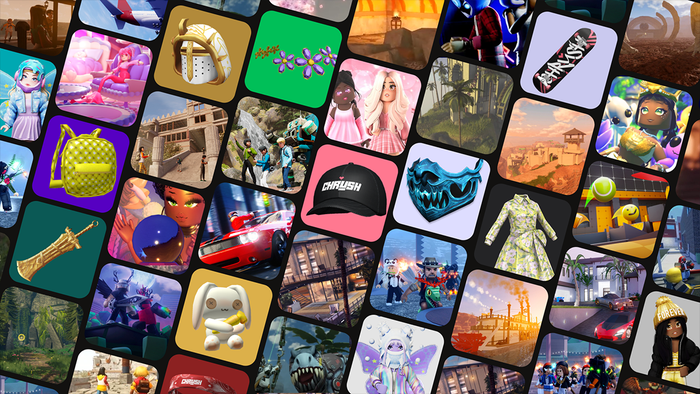Pressed for their (anonymized) thoughts on VR and AR, game developers from around the industry shared their opinions in the GDC 2016 State of the Industry survey. Here, we share some of them with you.

Just last week, the Game Developers Conference released its 2016 State of the Industry report (which you can download for free here).
One of the standout takeaways was the incredible interest in VR and AR among the over 2,000 developers who took the survey. 42% of developers said they were interested in the technology, and 75% believed that VR/AR was a sustainable business.
But we also left space for developers to give their own thoughts on the subject anonymously. Now we've compiled some of them below to help give you an idea of how the industry feels about the state of VR and AR.
There were some Yeas
With so many developers believing the industry is sustainable, there were remarkably few positive remarks in the comments. But when you consider that people generally comment to complain, this is not surprising. Many of those who were positive did take a wait-and-see attitude, as this commenter did, saying; “In 10 years it will be yes, for now it will be a niche RnD product with a hardcore following. It will only become mass-market once there are specific VR titles that do things regular consoles can't do.”
“VR is a technology that has been sought after for so many years and it is finally good and is hitting a decent price point for end users,” said another developer, adding, “Also, I have seen people who staunchly opposed VR change their mind after using it once.”
The cool factor was also frequently mentioned, and does seem to be where some of the initial excitement came from. “I think the idea of VR/AR has been in the minds of a lot of people, initially as a cool sci-fi concept, and lately as a possible and attainable reality,” said one developer. “Game developers are interested in exploring this new territory, which at the moment is going through some growing pains, but just as mobile games took off once the technology was able to support them, so will VR/AR. It is just a question of when.”
Price is also a concern, but this developer believes time will sort that out. “The financial backing is there, the public interest is there,” they said. “As long as the platform is cheap enough for consumers and the games that are produced to it are the kind that couldn't be experienced any other way and are innovative and demand to be played, I think the industry could certainly sustain itself.”
A few people were much more positive on the whole thing. This developer was particularly enthusiastic. “In this jaded industry a quality VR experience provides unparalleled immersion into a world. This is one of the cornerstones of a huge amount of games in the industry. Additionally, as a new medium/platform -- not just an accessory -- VR opens up a huge amount of potential for completely new kinds of games and experiences that haven't even been conceived of yet. Consumers will begin to realize how stale gaming has become when they dip their toes into these budding new dimensions of the industry and experience something truly refreshing and novel. This a shake-up the industry has needed.”
Some Nays
Not everyone is a believer. Many were the 3D TV and movie references. The word “gimmick” was thrown around. As one developer said, “Despite the production and marketing might, VR will be another novelty that fails to become ubiquitous, much like 3D TV or movies. AR will be far more marketable because of its lack of significant hardware required to be worn by a person.”
Some devs were concerned that the price of the devices will make it difficult for developers to support VR with exclusive content. “Unless the technology decreases in price dramatically I don't foresee widespread adoption of the technology by consumers,” said one developer, adding that it would leave “VR as a bonus feature of games rather than a core one, leaving you with a similar fate as motion controls -- few offerings that fully take advantage of the technology.”
And as one developer added, it's “hard to know if anything we're developing with will be present in the long-term.” Another naysayer said, “Many people prefer watching 2D movies over 3D movies now because of the uncomfortable glasses, even though 3D is more immersive. VR is like that, only more exaggerated.
This commenter wrapped the “niche” argument into a nice little bow. “I don't think there will be much profit (if any) in the field,” they began. “Most products will cater to a high-end hardcore player base with expensive games (your Elite: Dangerous crowd) and they will help finance the VR/AR industry. That will help subsidize the technology for others, mostly small indie projects, experiments, or art installations. I do not see much middle ground, and the size of these audiences is too small to be really sustainable.”
And some Maybes
Many were understandably skeptical. “The fact is we don't know,” said one developer. “There's a ton of money and resources being poured into an unknown. 3D TVs were supposed to be the future and failed. Motion controls were the future and were relegated to a novelty. Can it be successful and sustainable? Absolutely. Will it? Only time and the market will tell.”
One commenter said we'd all have to try harder if we want to make it successful. “It will depend on some dev studio cracking "that" set of experiences that can't be experienced without VR/AR,” they said. “The current VR games are not going to make VR mainstream.”
One developer made an interesting side note -- while they're positive on VR in general, they felt there would have to be some significant changes in process. “Our current design and marketing practices are not for VR,” they said. “We will need something entirely new which will create a whole new branch of the industry.”
AR Yes, VR No
One I'd gone through scads of comments stating that people “don't want to wear stuff on their face,” I realized there was a bit more confidence in AR, at least in the comments. (The actual stats say only 3% of developers are working on AR games.)
“While I believe that VR is too niche and is not sustainable long term, at least so long as its major detractors continue to exist, I think that AR is viable in the long term,” said one developer. “A major issue with VR is that it inhibits one's ability to see in real life, so movement will be limited. AR doesn't suffer (from) this problem. AR can easily accept more social uses as well, such as the Halo UNSC ship interior demo, where people in the same room could see each other in real life and also see the same AR. While VR could gain the ability to do couch coop and/or online multiplayer, I think that it blinding its users is too big of an issue.”
Another developer felt similar: “VR has great arcade potential, but for home use it is too cumbersome and limiting,” they said. “Assuming users get used to the motion sickness, the novelty wears off fast without additional peripherals that are expensive and only useful for a few games, or a perfectly designed space that most users don't have. AR has a good chance in the home market due to its high adaptability, but the devices do not yet have the power to entice the majority of users. Tracking is too slow on interactions, viewing angles are too narrow, and the gear is to large and intrusive. People are very excited about AR, but I think it will be several years of device improvements before it becomes commercially profitable.”
Bonus Round
Lastly, there were a few amusing responses that we felt compelled to share. One developer was worried about germs. “It failed 20 years ago due to hygiene issues involving shared headsets,” they said. “I've seen nothing that addresses this issue to date.”
Well, fair enough! Lastly, one impassioned AR supporter has decided that VR was over before it even began. They said, quite eloquently: “Fuck VR. AR is where it's at. VR = old school; AR = new cool.”
About the Author(s)
You May Also Like






